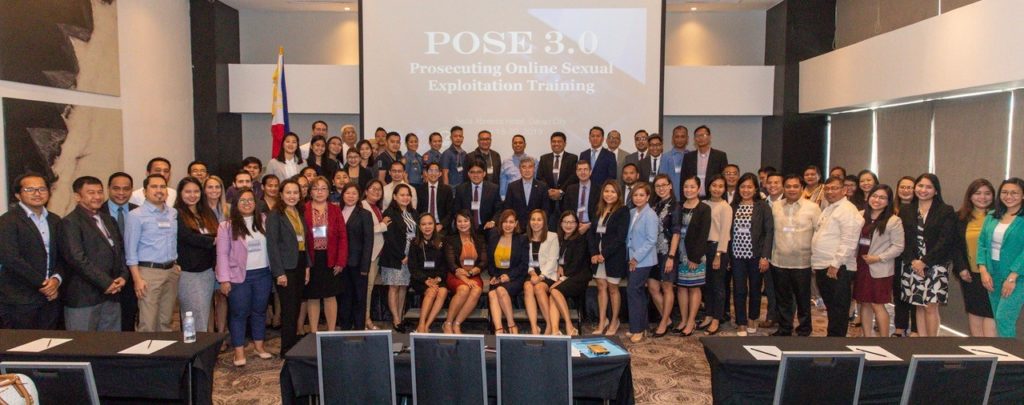Police, gov’t lawyers undergo training on prosecuting online sexual exploitation of children

Law enforcers and prosecutors coming from different parts of the country complete the three-day training on how to combat online sexual exploitation of children held in Davao City. /Contributed Photo
DAVAO CITY, Philippines — A three-day training course designed to help law enforcers and prosecutors combat online sexual exploitation of children (OSEC) in the Philippines ended last June 20, 2019.
Held in Davao City, the third iteration of the Prosecuting Online Sexual Exploitation (POSE) training upheld a twofold objective: to support effective law enforcement and prosecution of OSEC cases and maximize chances of obtaining and presenting digital evidence.
The POSE training series, which began in March 2018, brought together prosecutors, police officers, agency representatives, and legal staff from Luzon, Visayas, and Mindanao.
This training program resulted from a partnership between the Inter-Agency Council Against Trafficking (IACAT), the United States Department of Justice Office of Overseas Prosecutorial Development, Assistance and Training (US DOJ OPDAT), and International Justice Mission (IJM). Experts active in digital investigative analysis and the prosecution of OSEC cases from the Philippines and the United States formed part of the faculty.
Atty. Lisa Guevara-Garcia, IJM Manila’s director of Legal Interventions and POSE faculty member, said the program helped institute a more child-friendly process.
“The modules dealt with not only related laws, but practical solutions and, more importantly, innovative prosecution strategies that are aimed towards protecting the children involved,” she said.
Police Lieutenant Colonel Christine Tan, chief of the Women and Children Protection Center – Mindanao Field Unit (WCPC-MFU), credited the training in part for the recent entrapment and rescue operation in Iligan City.
“WCPC-MFU’s recent accomplishment is a result of our extensive collaboration with partner agencies and the just concluded training that equipped our online investigators,” Tan said.
WCPC-MFU operatives, led by Tan, arrested an online trafficker and rescued four minors in Iligan City last June 27. This rescue operation provided an avenue wherein key learnings from POSE 3 were tested in real cases.
In his opening remarks at the start of the program, US Ambassador to the Philippines Sung Kim reminded everyone of the importance of programs like POSE.
“Combatting this crime requires a strong law enforcement response and international cooperation. We are proud to be part of an international community that makes this a priority and we are proud to serve side by side with the Philippines in fighting this,” he said.
IJM National Director of Prosecution Development Lawrence Aritao, who led the design of POSE, added: “POSE was built to support justice system partners. It embraces a trauma-informed approach, focusing on making the most out of digital evidence to ease our reliance on victim testimony.”
Discussions during the training ranged from foundational concepts to ways of collecting and preserving digital evidence, using the evidence in OSEC cases, presenting digital experts, and parrying defense strategies.
Organizers are now preparing for POSE 4, which is scheduled to take place later this year. /dcb
Disclaimer: The comments uploaded on this site do not necessarily represent or reflect the views of management and owner of Cebudailynews. We reserve the right to exclude comments that we deem to be inconsistent with our editorial standards.
